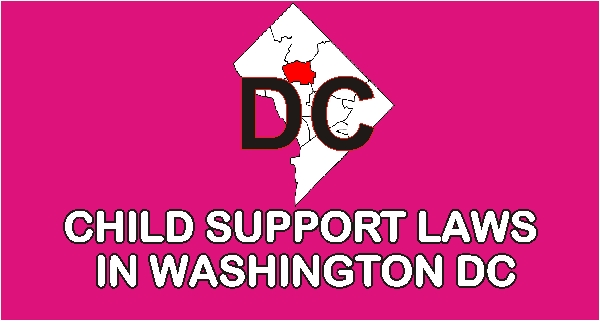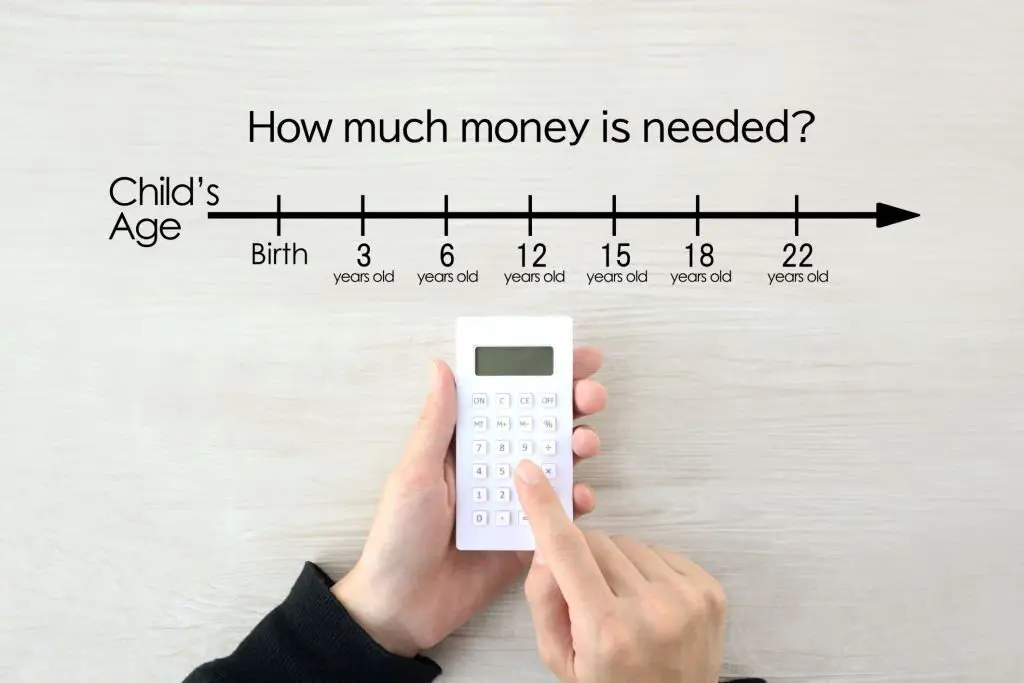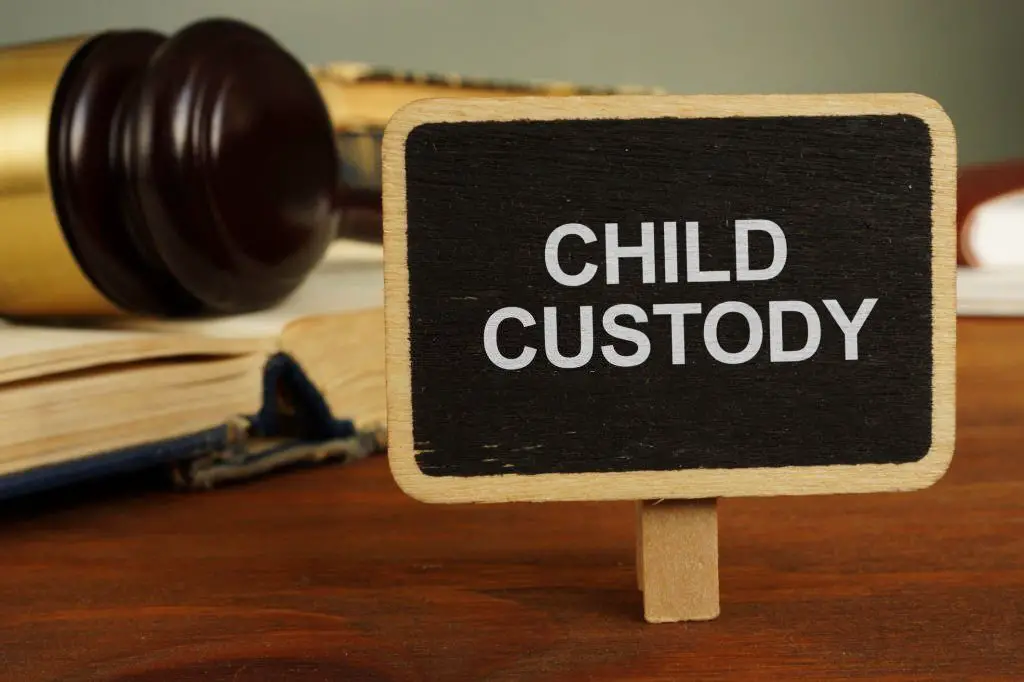
The laws governing child support in Washington DC are different from that of other cities. DC child support law sets how much the child maintenance should be, and the duration of such payments, plus it seeks to guide parents in exceptional cases such as deviation, support for disabled children, and retroactive support.
As you may already know, child support (or child maintenance) is a continuous monetary payment made by a spouse to another spouse, guardian, caregiver, or the city for the upkeep of children after a divorce or separation.
The person who is required to pay child support is referred to as the “obligor,” whereas the person who is eligible to receive child maintenance is referred to as the “obligee.”
What are DC Child Support Laws?
In Washington DC, the obligee is typically always the person who has primary custody of the child, which means the person who lives with the child, pays the majority of the living expenses, and has primary custody of the child.
The obligor is typically always the spouse who doesn’t have primary custody of the children and may or may not have custody or access to them.
What does Child Support Cover in Washington DC?
In Washington DC, child support typically covers:
- Basic support for food, clothing, and shelter
- Additional support for medical and dental expenses
- Educational expenses
- Child care expenses
- Travel expenses for visitations
- Other expenses as ordered by the court.
Child Support When One Parent Lives Outside Washington DC
To enforce child support orders beyond boundaries, each state has to have the Uniform Interstate Family Support Act (UIFSA) in place. Washington DC is no exception.
The UIFSA ensures that child support processes and procedures are consistent across states. When one spouse lives in another state where the Washington DC courts do not have the authority to adjudicate or enforce orders, UIFSA reduces these bottlenecks.
As a result of the UIFSA, a DC child support attorney can take legal action against a spouse who now lives in another state to enforce a child support order.
How is Child Maintenance Calculated In Washington DC?

Learn How Child Maintenance Calculated In Washington DC
In Washington DC D.C., child support is calculated using the Income Shares Model. This model takes into account the income of both parents and the number of children involved. The basic child support obligation is determined by using the Child
Support Guidelines table, which provides the amount of support that should be paid based on the parent’s combined income and the number of children. Other factors that are considered when calculating child support include the cost of healthcare, childcare, and education. The court may also consider the needs and expenses of the child, as well as the standard of living of the child before the separation or divorce.
Washington DC Child Support Calculator or Worksheet
While a child support calculator can be used to estimate child support, it is not a guarantee of the final amount of child maintenance that the judge will order. A child support worksheet is a form used by the DC courts (or negotiating spouses) to approximate the basic child support obligation of the parents.
Regardless of which approach you use, spouses can decide on a child support sum and amend the worksheet accordingly to ensure it accurately reflects their agreement. Both establish a presumption duty to pay child support.
The final decision on the amount of child support is made by the administrative law judge, administrator, or court.
How Washington DC Guidelines are Applied
The DC court will use child support guidelines, which are law-based and are sometimes known simply as “Guidelines. Guidelines establish a fundamental minimum amount of child maintenance, from which the court can differ after considering a variety of considerations.
The criteria are believed to be rational, and a decision of support that conforms to the guidelines is believed to be in the best interest of the child,” according to the guidelines.
The Washington DC Guidelines are based on Net Monthly Income. The court also will employ one of two methods after determining Net Monthly Income:
1. The first method applies if an obligor’s net monthly income is less than $7,500.00. The judge will consider the number of children in the household who are the subject of the petition in this case (note that a different calculation applies if an obligor has children in two different households).
2. The second method applies if an obligor’s net monthly income is more than $7,500.00.
Gross Income Included in Calculating Child Maintenance
For child support calculation purposes, gross income includes:
- all wages and salary, including commissions, military pay, tips, overtime, and bonuses
- self-employment income
- interest and dividends
- net rental income from property the parent owns
Even jobless parents are likely to have some sources of income, like:
- severance pay
- unemployment benefits
- retirement benefits
- veterans’ benefits
- disability benefits, or
- workers’ compensation awards.
A DC family court judge may also allocate an income value to parents who do not currently have income-earning employment (like a second house). If a jobless parent inherits assets that can be sold, for instance, the judge may include the property’s market value as a part of such parent’s income.
Where parents willfully go unemployed or underemployed in order to avoid paying child support, judges may infer (assign) income based on what they are supposed to be earning.
Net Income for DC Guidelines

How to determine Net Income for DC child support
Remove the following costs from the total gross income to get the parent’s net income for paying child support in Washington DC:
- Social Security taxes, or any mandated retirement plan contributions if the parent does not pay those taxes.
- Income taxes, both federal and state (based on the tax rate for a single person claiming one exemption)
- union dues
- The DC court has ruled the parent to pay the child’s health and dental insurance premiums, as well as additional medical bills.
Parents who have already paid child support for another kid or children (from a previous relationship) may be eligible for a refund.
Is Medical Health Insurance Part of Child Support in Washington DC?

Medical Health Insurance and Child Support in Washington DC
Yes, in addition to the amount of support determined by the guidelines in Washington DC, the parents will be responsible for the child’s health and dental insurance.
Whereas the noncustodial parent is presumed to provide coverage, this can readily be transferred to the other parent if it makes good sense.
For instance, suppose the custodial parent’s employer offers healthcare insurance for the dependent but the noncustodial parent does not.
Factors Washington DC Courts Consider Before Ordering Maintenance
The following factors must be considered by the court when determining whether Washington DC Family Code applies:
- The age of the child and needs; the parents’ ability to assist
- Financial resources available to the child
- For a set period of time, you have custody and access to a child.
- An increase or decrease in the obligee’s earnings or income due to the obligee’s property and assets
- Childcare expenses incurred by either parent in order to keep a job
- any other children under the care of either party
- Any other children under the care of either party
- What kind of alimony or spousal maintenance is being paid or received;
- Obligor or obligee receives an automobile, house, or other benefits from his or her employer or business entity.
- The parties or the child’s special education, health care, or other expenses
- The cost of traveling to obtain custody of and access to a child.
- Cash flow from any estate and assets, including real estate, personal property, and business property, can be positive or negative.
How to Challenge or Modify Child Support Order
In order to challenge or modify a child support order in Washington DC, the parent seeking the change must file a Motion to Modify with the court that issued the original order. Here are the steps:
- File a Motion to Modify Child Support: A parent seeking to change a child support order must file a motion with the court that issued the original order. This can typically be done with the help of an attorney or through the use of court forms.
- Provide evidence of a change in circumstances: The parent must provide evidence of a change in circumstances that justifies a modification of the child support order. This can include changes in income, changes in the child’s needs, or changes in the child’s living arrangements.
- Attend a hearing: Both parents will have the opportunity to present evidence and argue their case at a hearing. The court will then make a decision based on the evidence presented.
- Follow the court’s decision: Once a decision has been made, the court will issue a new child support order. It is important for both parents to follow the terms of the order, including making the appropriate payments and keeping records of payments.
- Seek the help of an attorney: If you are having difficulty navigating the process, it may be helpful to seek the help of an attorney who can guide you through the process and represent you in court.
Steps to Collect Child Support in Washington DC

Steps to Collect Child Support in Washington DC
Getting a child support order in place is only half the struggle in Washington DC. You’ll also have to collect the money itself. A noncustodial parent is responsible for paying the full amount of child maintenance per month as imposed by the court. Here are the steps for getting child support in DC
1. Open a Child Support Case
Complete a child support application with your local child support agency/office
2. Locate the Other Parent
To begin the child maintenance procedure in DC, the child support services (CSS) office will use the information provided by the applying parent, as well as information gathered from other sources, to try to locate the other parent.
3. Establish Parentage
It’s critical to establish a legitimate relationship with the child when the other parent has been located. The city will assist you in locating sufficient means. Parents can choose to acknowledge their parentage voluntarily or organize a genetic screening.
4. Establish a Child Support Order
A Washington DC child support order specifies how much the other parent should pay and includes details such as the payment schedule and provisions for the child’s health insurance.
5. Set Up Payment
Deducting child maintenance from a parent’s paycheck and transferring the money to the other parent or guardian is the most typical method of payment. It’s a simple way to make and track child support payments.
6. Enforce the Support Order
Your DC child support services will enforce the child support order if the noncustodial parent does not pay the full amount or does not pay any. Exposing overdue child support payments to credit bureaus, intercepting income tax refunds, and Withholding child maintenance from unemployment or worker’s compensation benefits are examples of other enforcement measures.
7. Review the Order
Three years after the order is issued, either parent can request their local child support office to revise it. They can ask for a reassessment sooner than three years if a parent’s situation has changed significantly, such as loss of employment or imprisonment.
Washington DC Child Support Services Office, Number and Login Portal
Office – Child Support Services Division (CSSD)
Department of Human Services (DHS)
441 4th St NW,
Washington, DC
20001,
United States
Phone Number – +1 202-442-9900
Online Login Portal – http://csed.dc.gov/
Retroactive Child Support and Arrears
In Washington DC, the consequences of not paying child support orders can include:
- Garnishment of wages or tax refunds
- Suspension of driver’s license, professional license, or recreational license
- Imposition of liens on property
- Contempt of court proceedings and fines
- Incarceration
- Credit bureau reporting
- Denial of a U.S. passport
- Interception of lottery winnings
- Non-renewal of vehicle registration
- Denial of hunting or fishing licenses.
In order to enforce retroactive child support payments in Washington D.C., the custodial parent can take the following steps:
-
- Contact the D.C. Child Support Services Division (CSSD) for assistance in collecting unpaid support.
- File a Motion for Contempt with the court, which can result in fines, wage garnishment, and/or imprisonment for the non-paying parent.
- Utilize the CSSD’s enforcement options such as income withholding, liens on property, and seizure of personal property or bank accounts.
- Request that the CSSD refer the case to the D.C. Attorney General’s office for legal action.
- Contact the Federal Office of Child Support Enforcement (OCSE) for additional enforcement options if the non-paying parent lives in another state.
If you feel the arrears are being demanded wrongly, you can learn how to get child support arrears dismissed HERE.
How to Pay Child Maintenance in Washington DC
In Washington DC, parents can pay child maintenance in a variety of ways, as long as your order doesn’t state otherwise:
- by debit or credit card,
- mail,
- check
- bank transfer
- direct deposit
- income withholding, or
- auto-draft from a bank account.
How to Check your Child Support Payment History in DC

How to Check Child Support Payment History in DC
When there are disagreements between the parents and a need to confirm how much money is owed, child support payment records are extremely beneficial.
When Does Child Support End in Washington DC?
In Washington, DC, child support typically ends when the child reaches the age of 18 or graduates from high school, whichever occurs later. However, if the child is still attending high school or is physically or mentally incapacitated, child support may continue past the age of 18.
Additionally, the court may order support to continue past the age of 18 if the child is still dependent on the parent for support. In cases where the child is over 18, the custodial parent can still file for child support if the child is in college, vocational school, or is disabled. The parent can file in family court or the child support enforcement division of the Office of the Attorney General.

Understanding Custody Rights of a Child in Washington DC
How Does DC Child Support Work if one Parent Has no Job?
If one parent has no job, the court will still order the non-custodial parent to pay child support based on their earning potential. This may include imputing income to the parent if they are found to be voluntarily unemployed or underemployed. The court may also take into account any public assistance the custodial parent and child may be receiving in determining the child support amount.
Is Child Support Tax Deductible in Washington DC?
NO. In Washington DC, child support payments are neither taxable to the recipient nor tax-deductible by the payer as stated by the IRS. Don’t include child support payments when calculating your gross income to see whether you have to file a tax return.
However, either parent may be eligible for a dependency exemption per child. If the parents can’t agree on who receives the exemption, the judge will set out the terms in a court order.
Getting a Skilled Washington DC Child Support Attorney
If you are involved in a family law matter in Washington DC, you may have a lot more questions than answers at this moment. You are not alone; Correspondence with members has shown that using the services of specialized child support attorneys saves a lot of hassles and most importantly, ensures you come out as a winner for you and your kid.
If you need to fight your child maintenance cause in DC with confidence, then you’ll need attorneys that are both empathetic and strong.
Luckily, we have compiled a database of these expert child support lawyers and made them available for the convenience of our members. You can reach them at the click of a button for legal advice and representation on child maintenance.
Click Here to Get our Free Washington DC Alimony recommendation.
Washington DC Resource
- Washington DC Child Adoption Guidelines
- Washington DC Childcare Guidelines
- Washington DC Child Custody and Visitation Guidelines
- Washington DC Child Support Guidelines
- Washington DC Divorce Guidelines
- Washington DC Marital Property Guidelines
- Washington DC Spousal Support Guidelines
- How to Check Washington DC Child Support Payment History
- Washington DC Child Support Calculator
- Washington DC Grants and Assistance for Single Mothers
Child Support Laws in all 50 States
A - Alabama | Alaska | Arizona | Arkansas
C - California | Colorado | Connecticut
D-H - Delaware | Florida | Georgia | Hawaii
I - Idaho | Illinois | Indiana | Iowa
K-L - Kansas | Kentucky | Louisiana
M - Maine | Maryland | Massachusetts | Michigan | Minnesota | Mississippi | Missouri | Montana
N - Nebraska | Nevada | New Hampshire | New Jersey | New Mexico | New York | North Carolina | North Dakota
O - Ohio | Oklahoma | Oregon
P-S - Pennsylvania | Rhode Island | South Carolina | South Dakota
T-U - Tennessee | Texas | Utah
V-W - Vermont | Virginia | Washington DC | Washington State | West Virginia | Wisconsin | Wyoming




